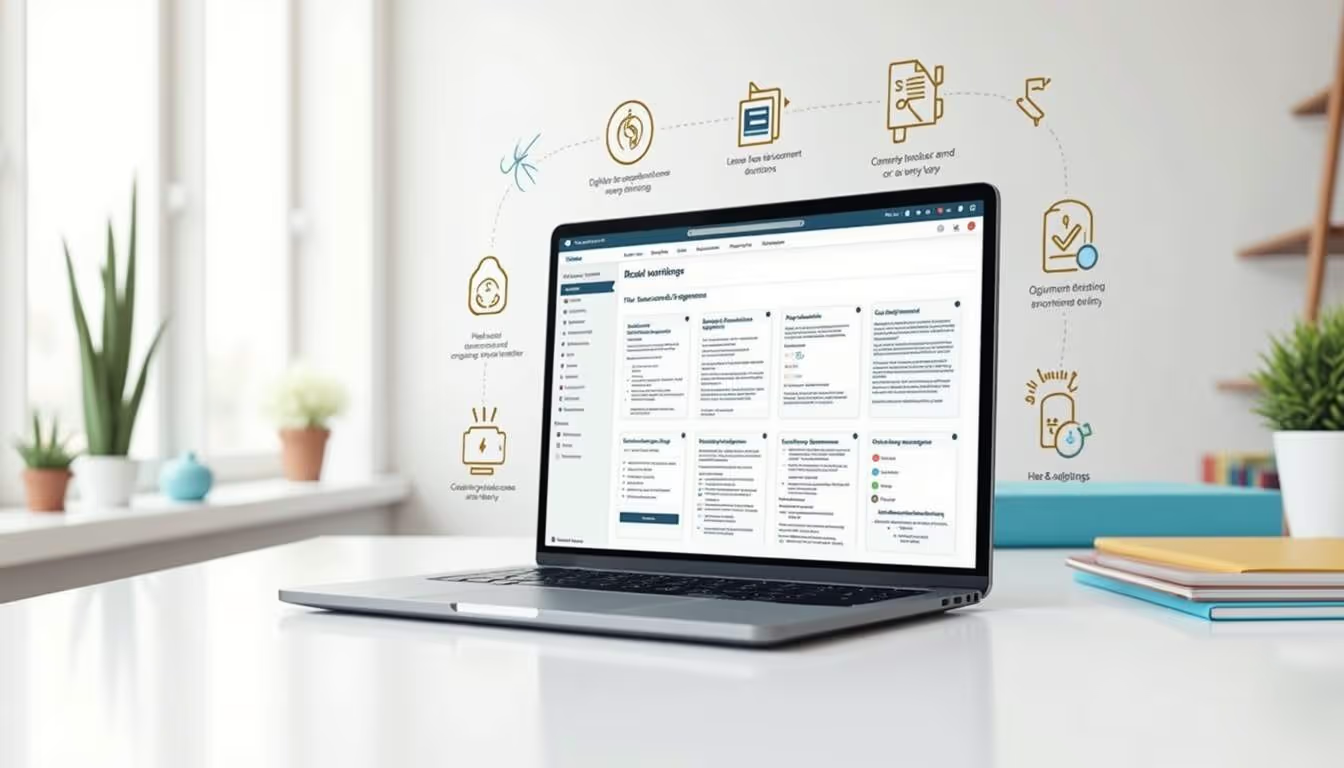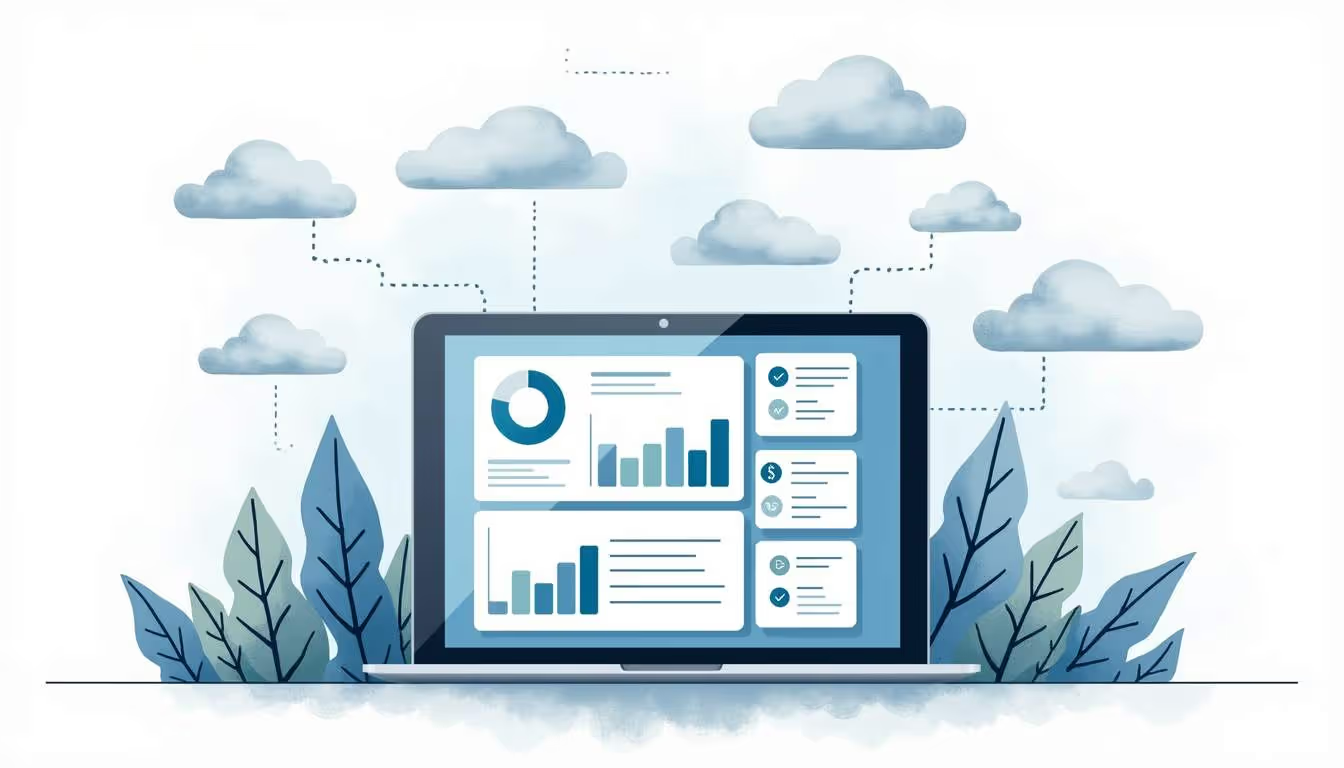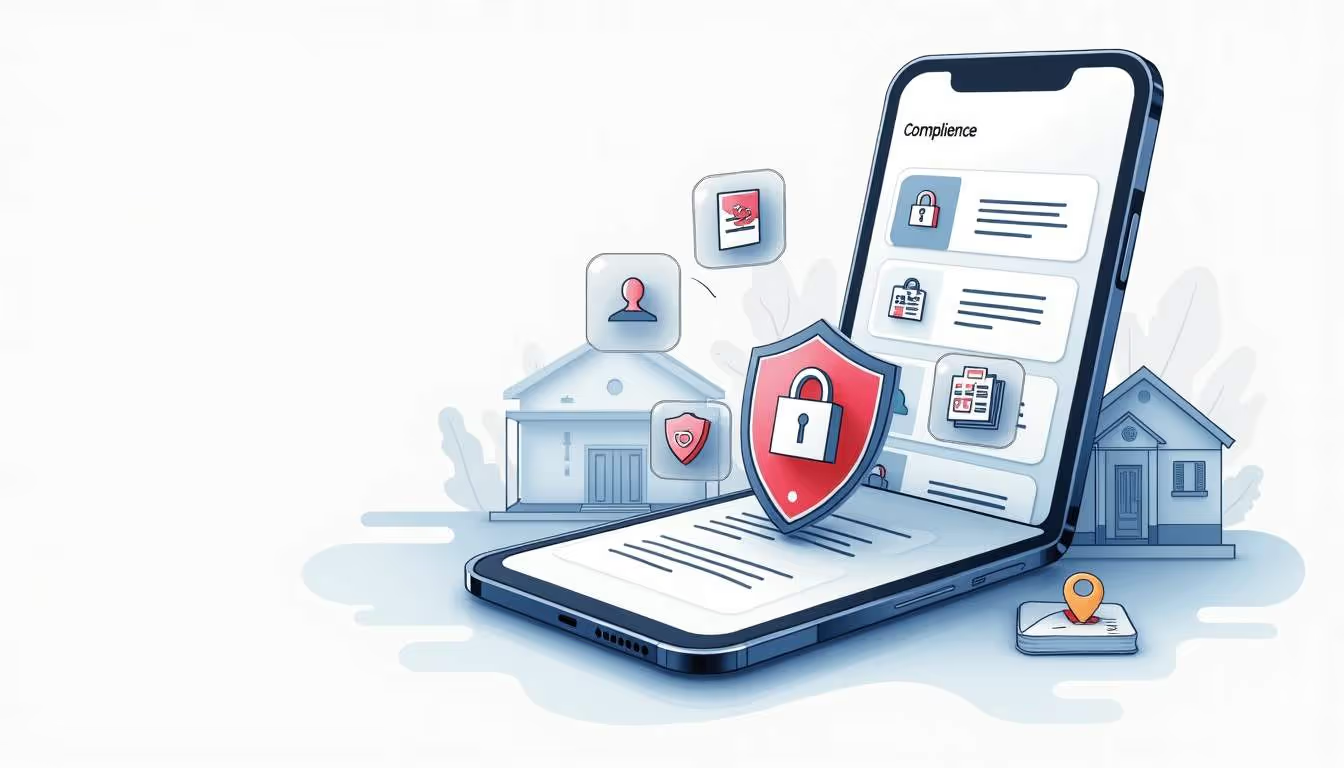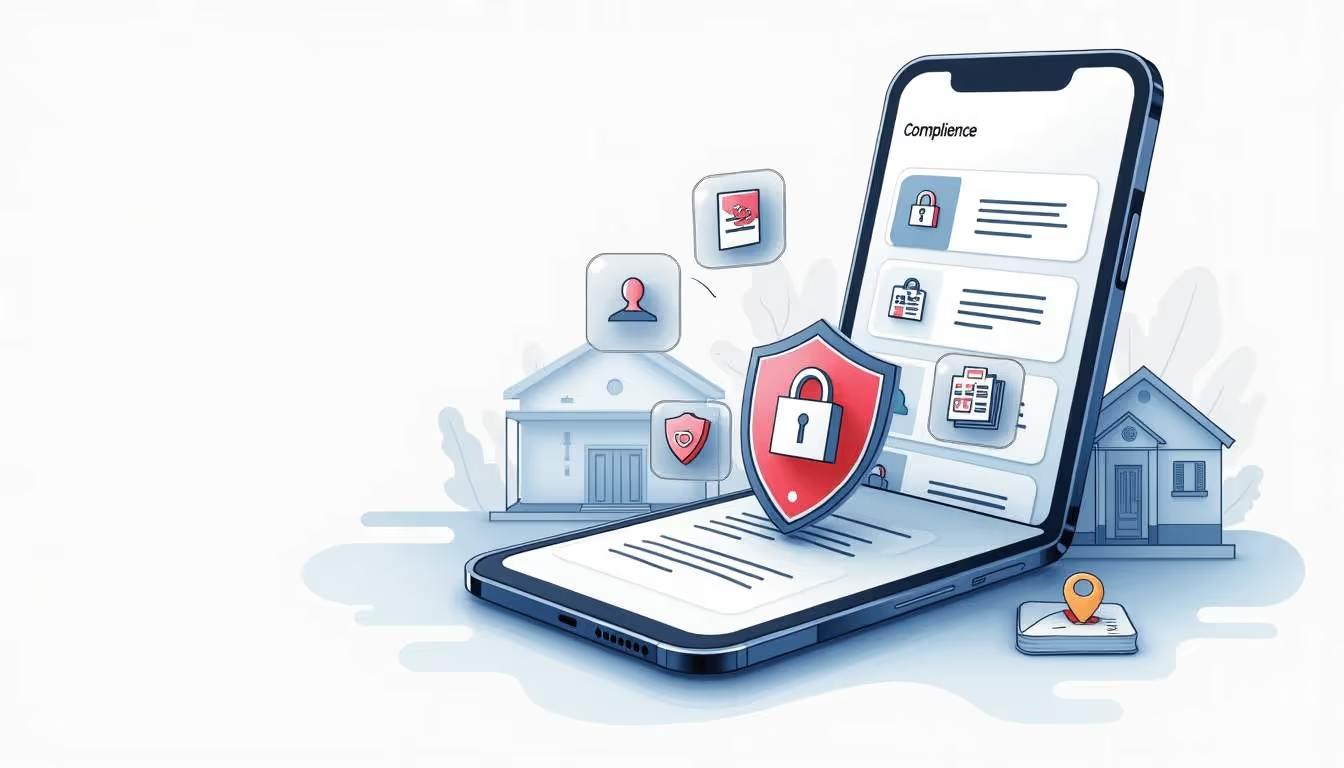Top Features to Look for in an Estate Management App
In today’s fast-evolving real estate landscape, estate management apps have become indispensable tools for property managers, landlords, and service companies alike. With the global property management software market projected to soar to over $54 billion by 2032, driven by a robust compound annual growth rate of 9.9%, the demand for innovative, efficient, and user-friendly digital solutions has never been higher.
Choosing the right estate management app can transform how properties are managed—streamlining operations, enhancing tenant satisfaction, and boosting profitability. But with so many options available, what features truly matter? This article explores the top features to prioritize when selecting an estate management app, ensuring you stay ahead in an increasingly competitive market.
1. Comprehensive Automation and AI Integration
One of the most transformative advances in estate management software is the integration of artificial intelligence (AI) and automation. Modern apps leverage AI to automate routine tasks and provide predictive insights that help property managers make smarter decisions.
For instance, AI-powered tools can streamline tenant screening by analyzing applicant data quickly and accurately, reducing the risk of costly tenant turnover. They also automate rent collection, minimizing delays and manual follow-ups. Predictive maintenance is another breakthrough, where AI analyzes data from sensors and past maintenance records to forecast when repairs are needed, preventing costly emergencies and downtime.
RealPage’s recent launch of Lumina AI Workforce exemplifies this trend, offering real-time insights and automating operational workflows to boost efficiency across property management activities. Such AI-driven capabilities not only save time but also enhance service quality and tenant satisfaction.
Why Automation Matters
Automation reduces human error and frees up property managers to focus on strategic tasks rather than administrative drudgery. As the property management industry faces challenges such as a slight dip in annual growth and increasing competition among over 37,000 companies, leveraging AI and automation can be a crucial differentiator.
Moreover, the implementation of AI in estate management is not just about efficiency; it also fosters a more personalized experience for tenants. By analyzing tenant behavior and preferences, AI can help property managers tailor communication and services to meet individual needs, enhancing tenant retention. For example, automated systems can send personalized reminders for lease renewals or maintenance updates, ensuring tenants feel valued and informed. This level of engagement is essential in a competitive market where tenant satisfaction directly impacts occupancy rates.
Additionally, the use of AI can extend to financial forecasting and budgeting within property management. By analyzing historical financial data and market trends, AI tools can assist property managers in making informed decisions regarding rent adjustments, capital improvements, and investment opportunities. This proactive approach not only helps in maximizing revenue but also in maintaining the long-term viability of the property portfolio, ensuring that property managers are equipped to navigate the complexities of the real estate market effectively.
2. User-Friendly Tenant Communication Portals
Effective communication between tenants and property managers is vital for smooth operations. Today’s tenants expect seamless, mobile-friendly communication channels that allow them to report issues, make payments, and receive updates without hassle. The shift towards digital communication has transformed the way landlords and tenants interact, making it essential for property managers to adopt these technologies to meet tenant expectations.
Studies show that 72% of tenants prefer using apps or online portals for communication, highlighting the importance of mobile accessibility and intuitive interfaces. An estate management app should offer a dedicated tenant portal or mobile app that supports messaging, maintenance requests, and payment processing. This not only streamlines operations but also fosters a sense of community among tenants, as they can easily share information and updates with one another through the platform.
Features to Look For in Tenant Portals
- Mobile Accessibility: Ensure the app supports smartphones and tablets, allowing tenants to interact on the go.
- Real-Time Notifications: Tenants appreciate instant updates on maintenance progress, payment confirmations, or community announcements.
- Secure Payment Gateways: Integrated rent payment options with multiple payment methods enhance convenience and reduce late payments.
In addition to these core features, a robust tenant communication portal may also include a community forum where residents can engage with one another, share recommendations, and organize events. This fosters a sense of belonging and encourages a vibrant community atmosphere, which can significantly enhance tenant satisfaction and retention. Furthermore, the inclusion of a document repository can allow tenants to access important documents such as lease agreements, community guidelines, and maintenance policies at their convenience.
Another valuable feature is the ability to provide feedback or rate services, which can help property managers identify areas for improvement. By actively seeking tenant input through surveys or suggestion boxes integrated into the portal, property managers can demonstrate their commitment to tenant satisfaction and make informed decisions that enhance the living experience. This two-way communication not only builds trust but also empowers tenants, making them feel valued and heard within their community.
3. Robust Lease and Document Management
Managing leases and related documents efficiently is a cornerstone of effective estate management. A top-tier app should provide secure storage, easy access, and automated reminders for lease renewals and expirations. This not only streamlines operations but also empowers property managers to focus on more strategic tasks, such as tenant engagement and property improvements. With a centralized digital repository, all stakeholders can access necessary documents from anywhere, ensuring that vital information is never out of reach.

Data-driven lease management tools can analyze lease terms and tenant histories to optimize renewal offers and reduce vacancy rates. This feature ensures compliance, minimizes paperwork, and helps avoid missed deadlines that can lead to revenue loss or legal complications. Furthermore, advanced analytics can identify trends in tenant behavior, allowing property managers to tailor their services and enhance tenant satisfaction, which is crucial for long-term retention.
Benefits of Digital Lease Management
Digitizing lease documents reduces physical storage needs and enhances accessibility for both managers and tenants. Automated alerts for key dates keep all parties informed, fostering transparency and trust. Additionally, digital lease management systems often come equipped with e-signature capabilities, allowing tenants to sign documents remotely and securely. This not only expedites the leasing process but also provides a seamless experience for tenants, making them more likely to renew their leases or recommend the property to others.
Moreover, the integration of cloud-based solutions in lease management ensures that data is backed up and protected against potential loss. This level of security is paramount, especially in an era where data breaches are increasingly common. By utilizing a robust digital platform, property managers can maintain compliance with regulations and safeguard sensitive tenant information. The ability to generate reports and insights from this data further empowers managers to make informed decisions, ultimately leading to enhanced operational efficiency and profitability.
4. Advanced Analytics and Reporting
Data is king in modern property management. Estate management apps equipped with advanced analytics provide actionable insights that help optimize operations and financial performance.
By integrating multimodal machine learning, some platforms significantly improve the accuracy and interpretability of real estate appraisals and market forecasts. This capability enables property managers to make informed decisions about pricing, maintenance investments, and portfolio expansion.
Comprehensive reporting dashboards should cover metrics such as occupancy rates, rent collection status, maintenance costs, and tenant satisfaction scores, all accessible in real time.
How Analytics Drive Growth
With the real estate software market expected to reach around $20 billion by 2025, leveraging data analytics is no longer optional but essential. It empowers managers to identify trends, anticipate challenges, and capitalize on opportunities swiftly.
5. Cloud-Based Architecture for Scalability and Cost Efficiency
Cloud-based estate management software has become increasingly popular, especially among small and mid-sized property managers. Unlike traditional on-premise systems, cloud solutions offer lower upfront costs, reduced IT maintenance, and seamless scalability.

Cloud platforms facilitate remote access, enabling property managers and teams to collaborate from anywhere. This flexibility is critical in today’s dynamic work environment and supports rapid growth without the need for expensive infrastructure upgrades.
Advantages of Cloud-Based Systems
- Cost Savings: Pay-as-you-go pricing models reduce capital expenditure.
- Automatic Updates: Software improvements and security patches are deployed without disruption.
- Integration Capabilities: Easily connect with other digital tools such as accounting software, CRM systems, and IoT devices.
6. Maintenance and Work Order Management
Efficient handling of maintenance requests is crucial for tenant retention and property value preservation. An estate management app should offer a streamlined work order system that tracks requests from submission to completion.
Features like priority tagging, vendor management, and real-time status updates improve transparency and ensure timely resolution of issues. Integration with AI can further enhance this process by predicting maintenance needs before problems escalate.
Enhancing Maintenance Efficiency
By automating task assignments and providing mobile access for maintenance staff, property managers can reduce response times and improve service quality. This proactive approach not only saves costs but also elevates tenant satisfaction.
7. Security and Compliance Features
Handling sensitive tenant and financial data demands robust security measures. Look for apps that offer encryption, role-based access controls, and compliance with relevant data protection regulations.

Additionally, compliance tools that help manage legal requirements such as fair housing laws, rent control ordinances, and safety inspections are invaluable for mitigating risk.
Protecting Data and Reputation
Security breaches can lead to severe financial and reputational damage. Choosing a platform with strong security protocols and regular audits ensures your data—and your tenants’ data—remains safe.
Conclusion
As the property management industry evolves, fueled by technological innovation and shifting tenant expectations, selecting an estate management app with the right features is critical for success. Prioritizing AI-powered automation, tenant communication portals, lease management, analytics, cloud-based architecture, maintenance workflows, and security will position property managers to thrive in a competitive market.
With the global property management software market poised for significant growth, investing in a comprehensive, future-ready app is not just a convenience—it’s a strategic imperative. By embracing these top features, service companies and property managers can streamline operations, enhance tenant experiences, and unlock new growth opportunities.








